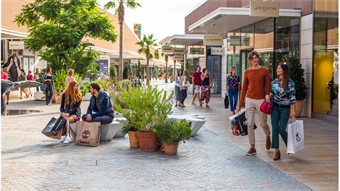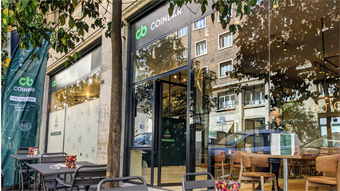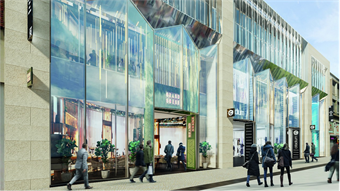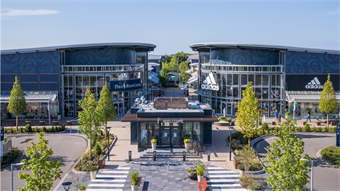Bauli gets sweet with consumers
- In Interviews
- 16:10, 09 November 2017
- 1593 Views
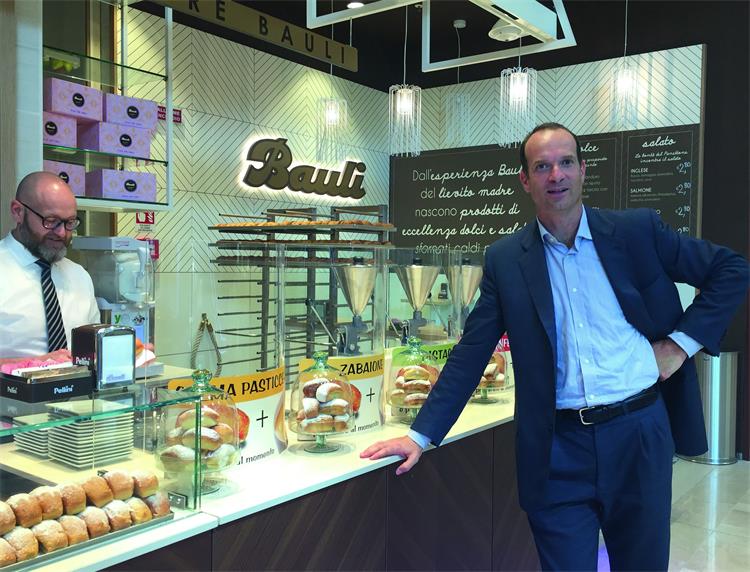
Italian confectionery maker Bauli has opened its first retail coffee shop at ECE’s Adigeo shopping centre in Verona.
Bauli is one of Italy’s most recognised mass market food brands. Since the 1920s the company has pioneered traditional Italian baking techniques, including the ancient Italian recipe for Pandoro di Verona for which it is best known.
Now the Verona-based confectionery bakery has opened its first retail coffee shop, at ECE Projektmanagement’s Adigeo shopping centre in Verona, opposite Bauli company headquarters.
From pandoro and panettone sweet bread loaf to croissants (the company now sells an incredible 2.7 million croissants a day), Bauli sells into 70 countries on five continents, including the US and India.
Mass market product
But growth has meant a growing distance between the company and its customers.
‘Our products have become mass market,’ says director Enrico Bauli. ‘One reason for trialling the coffee shop in Adigeo is to make our production more visible, revealing how much attention to detail goes into the process.’
Making traditional Baldi pandoro can take two days: the product is naturally leavening and it depends on the surrounding temperature and humidity - and the skill of Baudi’s bakers.
How can you replicate that consistently in a coffee shop? You can’t, admits Bauli. ‘It’s a 14-hour process, the first part has to be at our facility where we check everything, then we complete the process on site.’
One of the biggest issues for any food and beverage operator is to personalise its products, says Klaus Striebich, managing director at ECE Projektmanagement who worked with Bauli on its new retail concept.
Inspiration from Lisbon
As part of his research, Enrico Bauli visited over 150 shops across the world. He drew inspiration in particular from Lisbon, Portugal, where coffee shops such as the Pasteis de Belem are successfully making and selling the city’s traditional custard tarts. ‘They sell 20,000 every single day and customers see the whole process. Visitors queue around the block. That’s where I saw the value in the single product idea. We offer different sizes and shapes, but the fundamental product is the same.’
Bauli’s coffee shop has a simple offer: sweet or savory pandoro, made with Bauli’s ‘mother yeast’; club sandwiches and coffee, smoothies or fruit juices. ‘We would like to sell other Bauli baked products, such as croissants and biscuits, but we are concentrating on the two products we’ve been making for 90 years,’ says Bauli. ‘The ingredients are super simple: flour, butter, eggs, sugar. It’s the way we combine them which is complicated.’
Technology is essential
If the first coffee shop is a success, Bauli wants to open more, aiming for a second coffee shop by the end of this year, but the right technology is essential. ‘We must be able to guarantee quality,’ he says.
Bauli gives credit to ECE Projektmanagement for supporting the company’s ambitions.
‘They knew our brand and that we wanted to find a format where the consumer could see how we bake. But we didn’t have a retail product developed, and it was a risk. They worked with us.’
Secret Pandoro recipe
However, it is the precise technical challenges which go into producing such a seemingly simple product which Enrico Bauli is so keen to share. ‘My father passed away three years ago and he was responsible for making the product. When he died he left a security box in a Swiss bank.’
Enrico and his brother visited the bank, perhaps hoping for riches - and they found them, but not in the way we imagine. ‘There was the full pandoro recipe written in 1974 by our grandfather. Everything was there in detail: the right temperature, humidity, the time needed for it to rest. And we realised my grandfather had set out 99 variables that could affect the product, that’s why we can’t replicate the full process in every single shop.’
But it won’t stop Bauli finding the technology to try, however long it takes.


